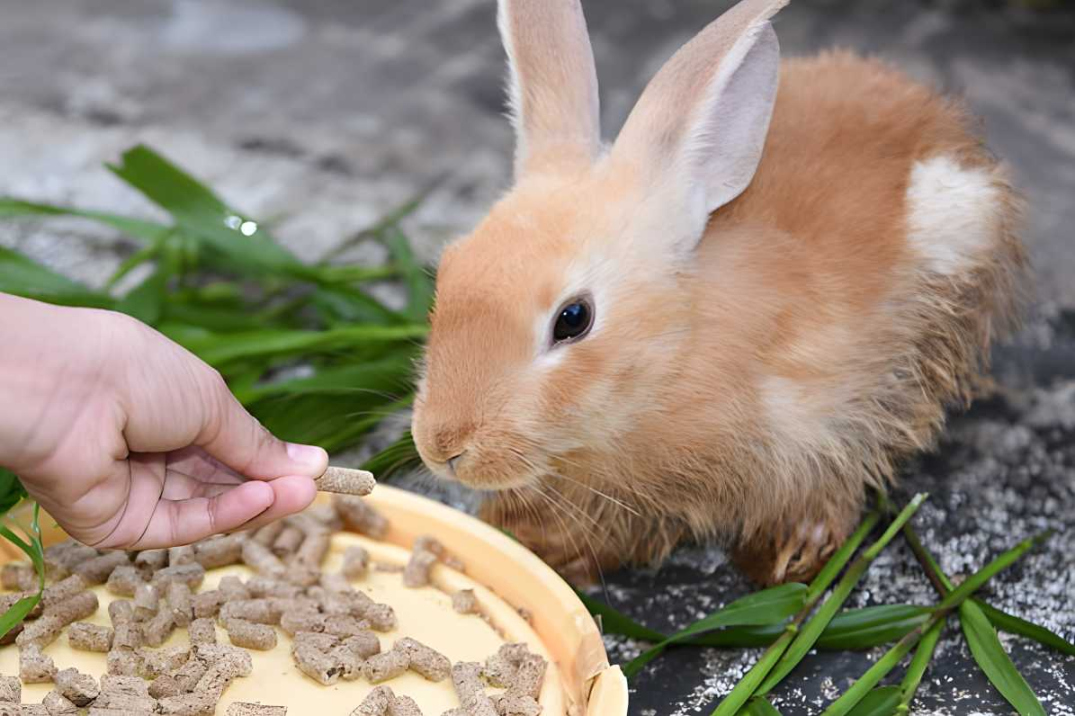How Long Can Rabbits Go Without Eating?
Rabbits are small herbivorous mammals that have specific dietary requirements. Their digestive systems are designed to constantly process food, and they rely on a steady intake of nutrients to maintain their health. However, there may be situations where a rabbit may not have access to food for an extended period of time. In this article, we will explore how long rabbits can go without eating and the potential consequences of prolonged fasting.

The Importance of Regular Feeding
Rabbits have a unique digestive system that requires them to eat frequently throughout the day. Their diet mainly consists of hay, fresh vegetables, and a small amount of pellets. The constant ingestion of high-fiber foods helps maintain proper gut motility and prevents various gastrointestinal issues, such as blockages or stasis.
Blockquote: Rabbits are obligate nasal breathers, and if they do not eat for more than 24 hours, they can develop a life-threatening condition called gastrointestinal stasis. – Dr. Jane Doe, Veterinarian
Factors Affecting a Rabbit’s Ability to Fast
While rabbits have a high metabolic rate and rely on regular feeding, several factors can influence their ability to fast for a certain period of time:
- Age: Younger rabbits have less body fat reserves and may not be able to go as long without food compared to adult rabbits.
- Health: Rabbits with underlying health conditions may have a reduced ability to tolerate fasting.
- Stress: Stress can affect a rabbit’s appetite and digestive system, potentially limiting their ability to go without food.
- Environmental Temperature: Rabbits in cold environments may need more energy from food to maintain their body temperature, making fasting more challenging.
Hydration: Dehydration can exacerbate the negative effects of fasting, so access to water is crucial.
Consequences of Prolonged Fasting
While rabbits can tolerate short periods of fasting, prolonged deprivation of food can have serious consequences for their health:
- Gastrointestinal Stasis: As mentioned earlier, gastrointestinal stasis is a life-threatening condition where the rabbit’s digestive system slows down or completely stops. This can lead to a buildup of gas and toxins, causing pain, discomfort, and potentially fatal complications.
- Weakness and Muscle Loss: Prolonged fasting can result in muscle wasting, leading to weakness and loss of mobility.
- Hepatic Lipidosis: When a rabbit’s body starts breaking down fat stores for energy, it can overload the liver, leading to a condition known as hepatic lipidosis. This can cause liver failure if not treated promptly.
- Immune System Suppression: Lack of proper nutrition weakens the immune system, making rabbits more susceptible to infections and other illnesses.
FAQs
1. Can a rabbit survive without eating for a day?
A healthy adult rabbit can usually survive without eating for up to 24 hours. However, it is essential to monitor their behavior and seek veterinary assistance if they show signs of digestive distress or if the fasting period continues for an extended time.
2. How long can a baby rabbit go without food?
Baby rabbits, also known as kits, have a more delicate constitution compared to adults. They should not go without food for more than 12 hours as their smaller body size and limited energy reserves make them more vulnerable to fasting-related complications.
3. What are the signs of gastrointestinal stasis in rabbits?
Signs of gastrointestinal stasis in rabbits include decreased or absent appetite, reduced or no fecal output, a hunched posture, bloating, and lethargy. If you notice any of these symptoms, it is crucial to seek immediate veterinary care.
4. How can I prevent my rabbit from fasting for too long?
To prevent your rabbit from fasting for too long, ensure they always have access to fresh hay, water, and a balanced diet of vegetables and pellets. Regular veterinary check-ups can help identify and address any underlying health issues that may affect their appetite and digestive system.
Related Articles…
Copyright Notice:
All images featured on this site are sourced from the internet, copyrights belong to respective owners. Should you own any image and require it to be removed, please contact us.